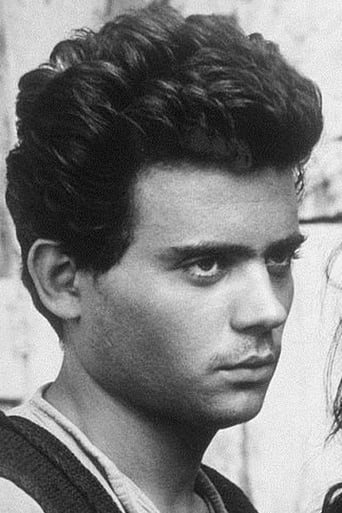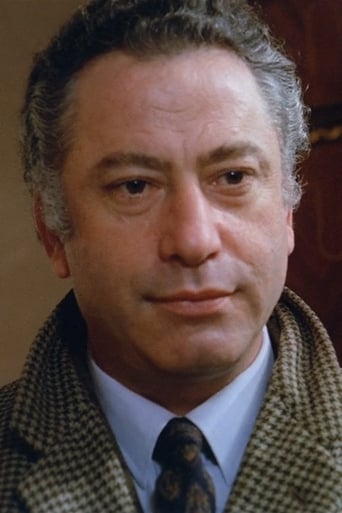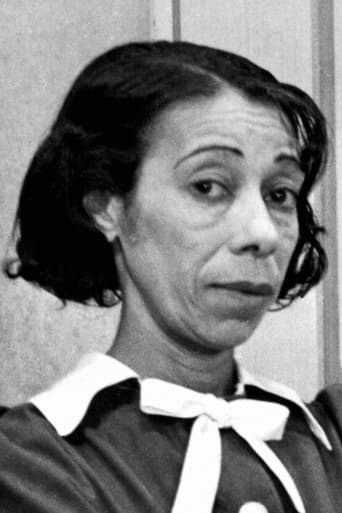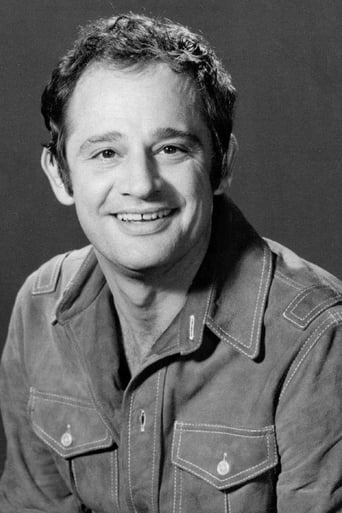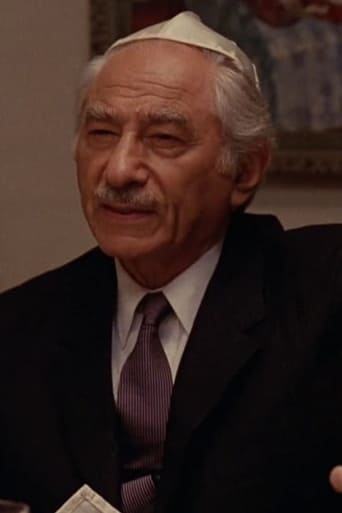Diagonaldi
Very well executed
Softwing
Most undeservingly overhyped movie of all time??
Nicole
I enjoyed watching this film and would recommend other to give it a try , (as I am) but this movie, although enjoyable to watch due to the better than average acting fails to add anything new to its storyline that is all too familiar to these types of movies.
Cassandra
Story: It's very simple but honestly that is fine.
atlasmb
During its existence, so many immigrants have come to The United States to escape persecution or poverty. Their stories are usually enthralling, and I have gone out of my way to hear the stories of first generation Americans from their own lips. Here is a film that captures much of the drama of those true stories, because it is the story of the director's (Elia Kazan) uncle, whose single-minded goal was to leave Turkey and come to the U.S.Kazan uses black and white film to achieve the feeling of a documentary, particularly in the last section of the film, when the protagonist--Stavros--arrives on American shores. Kazan also uses some unknown actors, not allowing the story to be subsumed by celebrity.This story feels like it has been told over and over during family gatherings, crystallizing it into a dramatic essence, achieving nearly-mythical proportions. Still, it feels true to life, infused with hard-edged realism."America America" is as fascinating as it is stark in its depiction of the immigrant experience. There is nothing glossy about this story and that is why it resonates with truthfulness.
em-632-781000
I first saw this film shortly after it came out when I was a young man, subject to all the passions and sensibilities of young men, an emotional slate on which it was still possible to write with bold strokes. And surely that accounted, to some degree, for the acutely emotional experience this film represented for me. It haunted me for days after I left the theater, and to some degree, has haunted me ever since, continuing to find a kind of timeless relevance in today's world. Very simply it is the story of a young man and his struggle to reach America. It is based on a true story, of the journey undertaken by director Elia Kazan's uncle, and it is played to perfection by a stellar cast, none of whom gives a more mesmerizing performance than young Stathis Giallelis, as Stavros. Because of its splendid, soul stirring music score, its location photography, and its flawless direction, I think it is perhaps the most nearly perfect film I have ever seen, and a deeply moving experience. I cannot recommend it highly enough. Forced to choose a favorite director, it would most likely be Kazan, and this is his masterpiece.
PWNYCNY
What we have here is a three-hour movie that required more editing. Just because the movie is an epic-length feature does not make it an epic, and this movie is not an epic. Ostensibly, it's about a young man, a Greek-Turk, struggling to emigrate to the United States but it's really about the director, using the movie as a pretext to tell his own story, a story that is not especially interesting. First, the director demonstrates his bias toward Turks, loading up the movie with stereotypical images of Turks as bullies, oppressors and petty-autocrats. Then, stretching plausibility to the limit, the director shows the protagonist, who is literally dirt poor, having lost whatever meager belongings he had to thieves and prostitutes, getting involved with the family of a well-to-do merchant and then, in what can only be ascribed to a bout of temporary insanity, rejecting the possibility of marrying into the family in order to go to America. It is one thing to emigrate because you're denied opportunity; it is another thing entirely to emigrate while opportunity is knocking on the door and in this movie not only is opportunity knocking for this young man, it's knocking loud and clear. Then he winds up having an affair with the married wife of a rich Armenian-American, a part of the movie which has some dramatic moments due to the excellent acting of Katharine Balfour, who gives the best performance in the movie. And finally he makes it to America, by appropriating a dead man's name, and then is shown shining shoes in New York City, with a big smile on his face, while the director, in an off-screen monologue, explains that over a period of years the young man manages to bring over the rest of his family. The scenes depicting his actual arrival to the United States are anticlimactic, featuring one brief glimpse of the Statue of Liberty in a wide angle shot; little drama there. Manhattan is depicted as a series of lights flickering in the distance; not much drama there either. Given the main character's obsession with getting to America, these scenes are a let down. Then there are the scenes set on Ellis Island which the director uses to impugn the American immigration officials who are portrayed as being arrogant and on the take. This alone should have been enough to convince the young man to take the next boat back to Turkey, beg his fiancé's forgiveness, marry her, acquire his father-in-law's business, make a lot of money, and possibly buy a political office, if not for himself then for one of his relatives. But he does not do it, instead settling to become a shoe shiner in New York City. The movie character Forest Gump said: "Stupid is as stupid does." Gump must have watched this movie too. How the young man, this shoe shiner, gets the money to afford to bring over the rest of his family is not explained, which is probably for the best. The interior cinematography is excellent, the exteriors showing mountains and villages almost stock footage; the actor who plays the protagonist gives a credible performance, and the rest of the cast does good work. It's the story, and the director's apparent need to focus on himself, that brings this movie down.
Sturgeon54
Imagine a film like "The Godfather" receiving almost no audience, relegated to the occasional appearance on the AMC channel, barely being released on VHS or DVD, and you will have some idea of the tragic fate of this lost epic masterpiece. As hard as it is to believe, this may be the prolific director Elia Kazan's greatest film achievement, yet hardly anyone has seen it. This is a film on the epic scale of "The Godfather," about a young Armenian man's escape from Turkish persecution, flight from Anatolia, and eventual immigration to Ellis Island - all based upon the the experiences of the director's uncle. What is also tragic is the fact that I can think of no other film which portrays the cruel persecution and genocide inflicted upon the Armenian minority by the Ottoman Turks in the early 20th century (which Hitler correctly pointed to as proof that the world would look the other way at the genocide he had planned in Europe in the 1930s). Every period detail in the film is perfect, from the Oscar-winning costume design to the set design, Greek folk music score, veteran Haskell Wexler's cinematography, and acting - especially lead actor Giallelis, whose intensity brings to mind some of Brando's early work.It is obvious that this film was a very personal piece of film-making for Kazan. And though I don't want to dwell as others do on Kazan's checkered past in his naming of communist colleagues for HUAC in the 1950s, it is interesting to note a parallel in the main character Stavros' personal anguish in making the choice to leave his wealthy wife and use her money to immigrate to the United States; both men made the conscious decision to drive a wedge between them and their past relationships. This is truly a film for all Americans to treasure, and if I had my way, I would make sure it was broadcast every 4th of July just as "It's a Wonderful Life" is broadcast every Christmas. As a nation of immigrants and descendants of immigrants, this is a film virtually every American can relate to. I can't figure out why it is so obscure.

